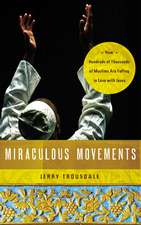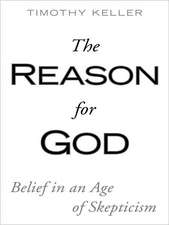A Framework for the Good
Autor Kevin Kinghornen Limba Engleză Paperback – 14 apr 2016
This book provides an ethical framework for understanding the good and how we can experience it in increasing measure. In Part 1, Kevin Kinghorn offers a formal analysis of the meaning of the term "good," the nature of goodness, and why we are motivated to pursue it. Setting this analysis within a larger ethical framework, Kinghorn proposes a way of understanding where noninstrumental value lies, the source of normativity, and the relationship between the good and the right. Kinghorn defends a welfarist conception of the good along with the view that mental states alone directly affect a person's well-being. He endorses a Humean account of motivation—in which desires alone motivate us, not moral beliefs—to explain the source of the normative pressure we feel to do the good and the right. Turning to the place of objectivity within ethics, he concludes that the concept of "objective wrongness" is a misguided one, although a robust account of "objective goodness" is still possible. In Part 2, Kinghorn shifts to a substantive, Christian account of what the good life consists in as well as how we can achieve it. Hume's emphasis of desire over reason is not challenged but rather endorsed as a way of understanding both the human capacity for choice and the means by which God prompts us to pursue relationships of benevolence, in which our ultimate flourishing consists. This original, carefully argued book will interest scholars and graduate students in moral philosophy and philosophy of religion.
"This is a terrific work, in many respects. It is ambitious, clear, engaging, and energetic. The better part of the second half of the book makes some original, positive moves in thinking about values from the standpoint of Christian theism. The material is nuanced, well-illustrated with analogies and thought experiments." —Charles Taliaferro, St. Olaf College
"This is a terrific work, in many respects. It is ambitious, clear, engaging, and energetic. The better part of the second half of the book makes some original, positive moves in thinking about values from the standpoint of Christian theism. The material is nuanced, well-illustrated with analogies and thought experiments." —Charles Taliaferro, St. Olaf College
| Toate formatele și edițiile | Preț | Express |
|---|---|---|
| Paperback (1) | 326.40 lei 6-8 săpt. | |
| MR – University of Notre Dame Press – 14 apr 2016 | 326.40 lei 6-8 săpt. | |
| Hardback (1) | 698.81 lei 6-8 săpt. | |
| Wiley – 29 noi 2021 | 698.81 lei 6-8 săpt. |
Preț: 326.40 lei
Nou
Puncte Express: 490
Preț estimativ în valută:
62.47€ • 64.97$ • 51.57£
62.47€ • 64.97$ • 51.57£
Carte tipărită la comandă
Livrare economică 14-28 aprilie
Preluare comenzi: 021 569.72.76
Specificații
ISBN-13: 9780268033309
ISBN-10: 0268033307
Pagini: 358
Dimensiuni: 152 x 229 x 20 mm
Greutate: 0.53 kg
Ediția:1
Editura: MR – University of Notre Dame Press
ISBN-10: 0268033307
Pagini: 358
Dimensiuni: 152 x 229 x 20 mm
Greutate: 0.53 kg
Ediția:1
Editura: MR – University of Notre Dame Press
Recenzii
"Philosophy in the analytic tradition has long needed a phenomenology for ethics. This book meets the need with an original framework for ethics that aims to be Christian. Contending that only pleasurable mental states have intrinsic value, Kevin Kinghorn advocates for objectivity in matters of goodness and badness but not in matters of rightness and wrongness. He makes illuminating use of the ideas of 'feeling tones' and 'feeling connected to others' to elaborate his phenomenology for ethical relationships. The result is a novel and clarifying treatment of foundational ethical issues with special attention to Christian ethics. Overall, this is a very important contribution to the field of philosophical ethics." —Paul K. Moser, Loyola University Chicago
"This is a terrific work, in many respects. It is ambitious, clear, engaging, and energetic. The better part of the second half of the book makes some original, positive moves in thinking about values from the standpoint of Christian theism. The material is nuanced and well illustrated with analogies and thought experiments. The first half also displays creativity and ingenuity." —Charles Taliaferro, St. Olaf College
“A lucidly written, cogent argument for a bold and original thesis well worth the reader’s serious consideration—a proposal not responsibly ignored. Highly recommended.” —David Baggett, co-author of God and Cosmos: Moral Truth and Human Meaning
"A Framework for the Good is a creative and intriguing book. It challenges certain familiar conceptions of the good and the good life while striving to remain faithful to biblical—and specifically Trinitarian—categories. And even if some readers do not agree with Kinghorn’s arguments or certain starting assumptions, their horizons will be expanded and their moral thinking benefited by this bold work." —Paul Copan, Professor and Pledger Family Chair of Philosophy and Ethics at Palm Beach Atlantic University
“Like David Baggett and Jerry Wells . . . and others, Kinghorn . . . seeks to provide a philosophical treatment of morality that takes Christian theology seriously. Recommended.” —Choice
“[Kinghorn’s] writing is scholarly, and this book seems to grow naturally out of his previous work. It does, however, stand on its own as an insightful contribution to the long philosophical heritage of examining what the truly good life is. Highly recommended for university and seminary libraries.” —Catholic Library World
Notă biografică
Kevin Kinghorn is professor of philosophy and religion at Asbury Theological Seminary. He is author of The Decision of Faith: Can Christian Beliefs Be Freely Chosen?










